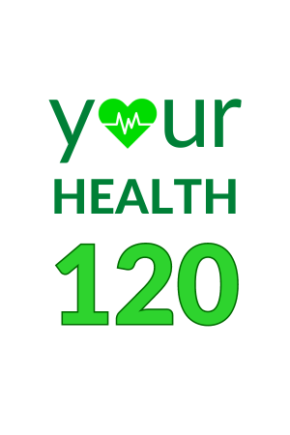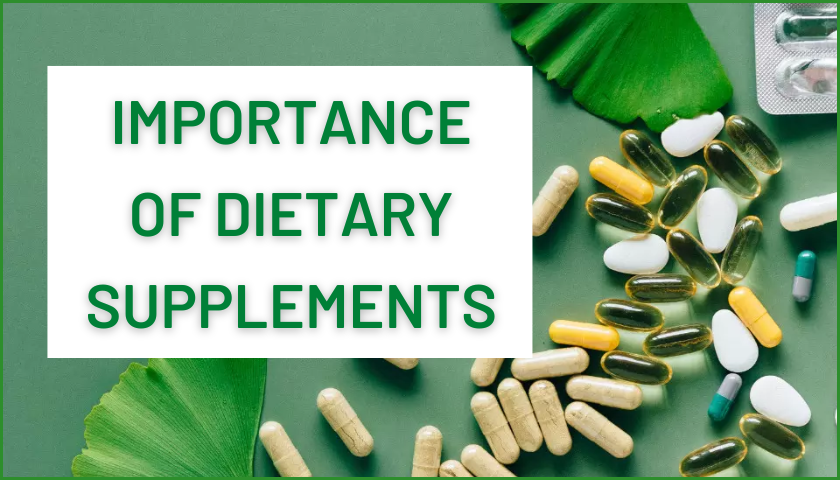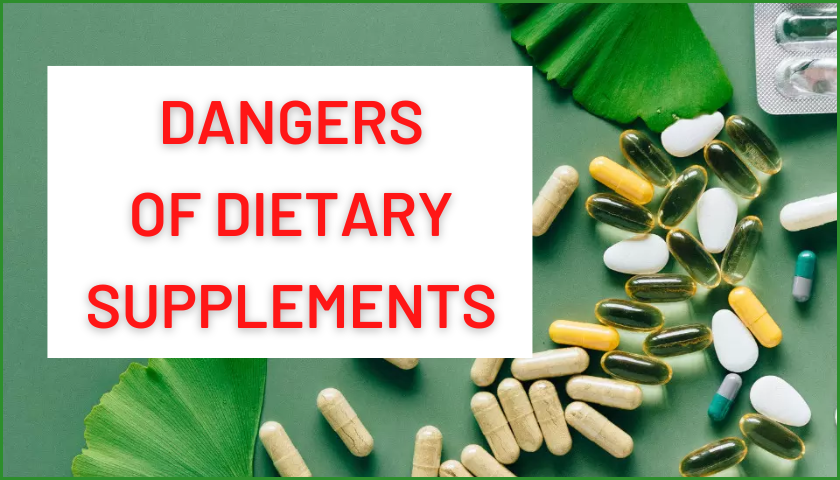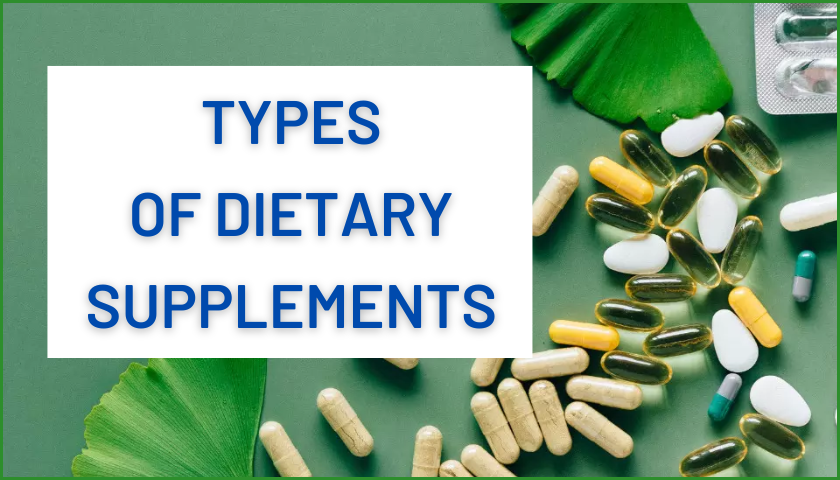The Importance of Dietary Supplements in modern times, should not be overlooked. Why? Current standard agricultural practices, compromise the quality of food. To mitigate the compromised nutritional value of food, many are turning to dietary supplementation today. This post unpacks, the key categories, ingredients, sources, popular forms, most widely consumed supplements and why we need supplements. A dietary supplement is a packaged or manufactured product intended to supplement one’s diet. Dietary supplements can be taken orally by mouth and/or applied topically.
The Lack of Adequate Nutrients in the Modern Diet
In today’s fast-paced world, the convenience of processed and fast foods has become a staple in many people’s diets. Unfortunately, this shift has led to a 2-pronged side effect – One – a significant decline in the nutritional quality of the average diet. Two – a challenge obtaining all the essential nutrients our bodies need from food alone. This is why the importance of dietary supplements comes into play.
-1- Agricultural Practices
Modern agricultural practices have also contributed to nutrient depletion in the soil, which affects the nutritional content of fruits, vegetables, and grains. Intensive farming methods, overuse of chemical fertilizers, and soil erosion have resulted in crops that are less nutrient-dense than those grown decades ago. Consequently, even those who consume a diet rich in fresh produce may still fall short of their nutritional requirements.
-2- Food Preparation
Moreover, the way we process and prepare food further strips it of essential vitamins and minerals. For example, refining grains removes the nutrient-rich bran and germ, leaving behind a product that is lower in fiber and key nutrients like B vitamins and iron. Cooking methods, such as boiling or frying, can also destroy heat-sensitive vitamins like vitamin C and some B vitamins.
-3- Dietary Restrictions
The prevalence of dietary restrictions and preferences, such as vegetarianism, veganism, or gluten-free diets, can also lead to nutrient gaps. While these diets can be healthy, they often require careful planning to ensure adequate intake of certain nutrients, such as vitamin B12, iron, calcium, and omega-3 fatty acids. Here again, the importance of dietary supplements becomes evident as they help bridge these gaps and ensure a balanced intake of essential nutrients.
-4- Modern Lifestyle
In addition, our modern lifestyle, marked by high levels of stress, exposure to pollutants, and inadequate sleep, increases our body’s demand for certain nutrients. For instance, stress depletes magnesium levels, and inadequate sun exposure can lead to vitamin D deficiency. Dietary supplements can provide targeted support to replenish these critical nutrients, promoting overall well-being and longevity.
-5- Address The Deficiency
This might sound dire but there is hope. We need to first start by understanding the importance of dietary supplements, and then second examine the impact of nutrient depletion in soils, finally take proactive steps to use them wisely to support our health. Why? Because supplements provide a reliable and consistent source of essential vitamins, minerals, and fill the nutritional gaps when our dietary choices fall short. It is therefore essential to complement your diet with carefully selected supplements as a safety net against modern dietary habits and lifestyle factors. To ensure your body is constantly receiving the nutrients needed to function correctly, maintain optimal health and prevent disease.
Nutrient Depletion in Soils vs. Individual Nutrient Needs (RDA)
Research has shown a significant reduction in the levels of essential minerals in common vegetables. A study comparing nutrient data from the 1930s to recent data found that the levels of calcium in vegetables had dropped by 19%, iron by 15%, and vitamin C by 20%. We therefore need to delve into the impact of nutrient depletion in soils and how these impacts your nutrient needs based on the Recommended Dietary Allowances (RDA). And, understand the importance of dietary supplements, by going a step further and outlining practical examples below.
Nutrient Depletion in Soils
Over the several past decades, intensive farming practices have significantly reduced the nutrient content of the soil. Studies have shown that the mineral content of soil has declined due to:
-1- Monocropping
Growing the same crop repeatedly depletes specific nutrients from the soil without allowing it to recover.
-2- Overuse of Chemical Fertilizers
These fertilizers often lack the broad spectrum of minerals found in natural fertilizers, leading to an imbalance and depletion of essential nutrients.
-3- Soil Erosion
Topsoil, which is rich in nutrients, is often eroded away by wind and water and deforestation, leaving behind less fertile soil.
Nutrient Needs (RDA) of a Person
RDA is a guideline of daily nutritional needs based on the majority of healthy individuals in a population. Here are some examples of RDAs for essential nutrients, and further illustrations of the challenge of getting adequate nutrients.
-1- Calcium Availability vs RDA in Spinach
All adults aged 19-50 need to consume Calcium of 1,000mg RDA daily. Imagine an individual trying to meet their daily calcium requirement (1,000 mg) through spinach, known for its high calcium content. Due to soil depletion, the calcium content in spinach is lower than in the past. Historically, a serving of spinach contained 100 mg of calcium, but current levels have dropped to 80 mg per serving. This person would now need to consume 12.5 servings of spinach, compared to 10 servings in the past, to meet their calcium needs.
-2- Iron Availability vs RDA in Beef
The RDA for Iron is 8 mg per day for men and 18 mg per day for women aged 19-50. The depletion of essential minerals, including iron, in agricultural soils affects the nutritional quality of crops and, consequently, the animals that consume these crops. The Recommended Dietary Allowance (RDA) for iron is 8 mg per day for men aged 19-50. Iron is crucial for producing hemoglobin, the protein in red blood cells that carries oxygen throughout the body. Beef is a notable source of iron. Historically, a 3-ounce serving of beef provided about 2.1 mg of iron. Due to changes in animal feed quality caused by soil nutrient depletion, modern beef may provide only 1.5 mg of iron. A man now needs about 16 ounces of beef to meet his daily iron requirement, compared to 11.5 ounces in the past.
-3- Vitamin C Availability vs RDA in Oranges
The RDA for Vitamin C is 90 mg per day for men and 75 mg per day for women. The depletion of essential nutrients, including Vitamin C, in agricultural soils affects the nutritional quality of crops. The Recommended Dietary Allowance (RDA) for Vitamin C is 90 mg per day for men and 75 mg per day for women. Vitamin C is crucial for immune function and collagen production. Oranges are a common source of Vitamin C. Historically, an average orange provided about 70 mg of Vitamin C per serving. Due to soil nutrient depletion, modern oranges may provide only 50 mg. A woman now needs about 1.5 oranges to meet her daily Vitamin C requirement, compared to needing just one orange in the past.
Dietary Supplements Importance – To Bridge The Health Gap
The examples above highlights how soil nutrient depletion affects the calcium, iron and vitamin C nutritional value of our food today. This makes it challenging to meet our RDAs through diet alone. Dietary supplements bridge this gap by providing a reliable source of essential nutrients. They help to ensure that we get the required amounts of vitamins and minerals necessary for maintaining optimal health, supporting bodily functions, and preventing deficiencies. Given that it’s not always practical or possible to consume large quantities of certain foods, dietary supplements are the must-have health tool for closing nutrition gaps. While, providing a concentrated source of essential nutrients, for you without the need to take drastic measures to alter your diet.
An Alarming Decline in the Nutritional Quality of Foods: The Biggest Challenge for Future Generations’ Health
In the last sixty years, there has been an alarming decline in food quality and a decrease in a wide variety of nutritionally essential minerals and nutraceutical compounds in imperative fruits, vegetables, and food crops. The potential causes behind the decline in the nutritional quality of foods have been identified worldwide as chaotic mineral nutrient application, the preference for less nutritious cultivars/crops, the use of high-yielding varieties, and agronomic issues associated with a shift from natural farming to chemical farming. Likewise, the rise in atmospheric or synthetically elevated carbon dioxide could contribute to the extensive reductions in the nutritional quality of fruits, vegetables, and food crops.
MDPI Publisher
Declining Fruit and Vegetable Nutrient Composition: What Is the Evidence?
Three kinds of evidence point toward declines of some nutrients in fruits and vegetables available in the United States and the United Kingdom: 1) early studies of fertilization found inverse relationships between crop yield and mineral concentrations—the widely cited “dilution effect”; 2) three recent studies of historical food composition data found apparent median declines of 5% to 40% or more in some minerals in groups of vegetables and perhaps fruits; one study also evaluated vitamins and protein with similar results; and 3) recent side-by-side plantings of low- and high-yield cultivars of broccoli and grains found consistently negative correlations between yield and concentrations of minerals and protein, a newly recognized genetic dilution effect.
American Society for Horticultural Science Journal
Dietary Supplements Importance – For A Long Healthy Life
Research consistently shows that incorporating dietary supplements into a balanced diet can contribute to a longer, healthier life. Studies have demonstrated that supplements like multivitamins, omega-3 fatty acids, and vitamin D can help reduce the risk of chronic diseases, support immune function, and enhance overall vitality. Even with a healthy diet, it can be difficult to obtain all the necessary nutrients due to factors like soil depletion, lifestyle, and dietary restrictions. Therefore, supplements play a vital role in maintaining nutrient levels that promote long-term health and well-being, ensuring that individuals can lead active and fulfilling lives despite the challenges posed by modern dietary limitations.
Certain vitamins and minerals may help boost longevity
Biochemist Bruce Ames from the University of California, Berkeley, has developed a list of 41 vitamins and minerals such as magnesium and omega-3 fatty acids that he says may help with healthy aging. These substances help keep the body running smoothly. If supplies run low, the body may have to pull resources from tasks like repairing DNA damage that keep cells younger and healthier, but keeping supplies up could prevent this, according to Ames.
Harvard T.H. Chan School of Public Health
Fruits and vegetables are less nutritious than they used to be (plant based diets)
As you gaze across the rows of brightly colored fruits and vegetables in the produce section of the grocery store, you may not be aware that the quantity of nutrients in these crops has been declining over the past 70 years. Mounting evidence from multiple scientific studies shows that many fruits, vegetables, and grains grown today carry less protein, calcium, phosphorus, iron, riboflavin, and vitamin C than those that were grown decades ago. This is an especially salient issue if more people switch to primarily plant-based diets, as experts are increasingly recommending for public health and for protecting the planet.
National Geographic Magazine
Case for Supplementation – Global ‘Hidden Hunger’ Malnutrition
According to WHO & Gain Health, dietary supplements add nutrients to your diet to improve your health. They lower the risk of health related problems as we age.
According to who.int https://www.who.int
Micronutrient-related malnutrition is the inadequacies in intake of vitamins and minerals often referred to as micronutrients. Micronutrients enable the body to produce enzymes, hormones, and other substances that are essential for proper growth and development. ‘Hidden Hunger’ is the incidence of micronutrient related malnutrition.
According to gainhealth.com https://www.gainhealth.org
“Hidden hunger is a form of malnutrition. A lack of vitamins and minerals in the diet include: vitamin A, iron, zinc, folic acid, and iodine causes malnutrition. Essential nutrients required in small amounts are micronutrients. Micronutrient deficiency is a leading cause of: intellectual disability and preventable blindness in children. In addition to, maternal death during childbirth. It limits a person’s ability to learn, earn a living, or live a healthy life. The consequences of malnutrition is debilitating. It has wide reaching consequences and can damage whole communities and economies.”
Let’s Explore Our Health Together…
- About (7)
- Anti-Aging (6)
- Healing Oils (7)
- Health Hacks (2)
- Health Hazards (2)
- Supplements (3)




